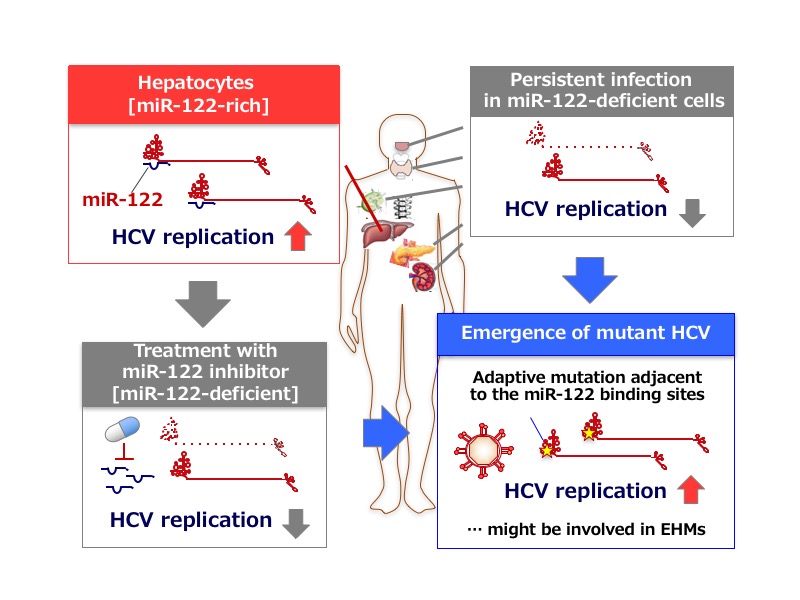Characterization of miR-122-independent propagation of HCV (from Matsuura Lab, in PLoS Pathogens)
A liver-specific microRNA, miR-122, is one of the key determinants of hepatitis C virus (HCV) hepatotropism and is required for efficient propagation of HCV. On the other hand, chronic infection with HCV is often associated with extrahepatic manifestations (EHMs), and a low level of HCV-RNA replication has been detected in some non-hepatic cells. Nonetheless, the detailed mechanisms underlying these phenomena remain unknown. Here, we show that miR-122 is dispensable for low-level replication or infectious particle formation, and a mutant virus adapted to miR-122-knockout cells exhibited efficient but miR-122-independent propagation. The adaptive virus of HCV genotype 2a possessed a G28A substitution in the 5’UTR and facilitated efficient replication complex formation under an miR-122-deficient condition, while it propagated at a level comparable to the wild type HCV in the presence of miR-122. Moreover, various adaptive mutations including C30U were introduced into genotype 1b, which originally had an adenine at the nucleotide position 29. Moreover, G28A mutation was detected in approximately 40% of PBMC of patients including those developed EHMs who infected with genotype 2a HCV. These observations suggest that substitutions that yield miR-122-independent propagation are not induced during propagation in hepatocytes; however, treatment with an miR-122 inhibitor or persistent infection of HCV in non-hepatic cells may induce the emergence of mutant viruses, as evidenced by clinical samples.
This article is published in PLoS Pathogens.
Characterization of miR-122-independent propagation of HCV.
PLoS Pathogens 2017 May 11;13(5):e1006374. doi: 10.1371/journal.ppat.1006374
Links
- Home
- Achievement
- Research Activities
- Characterization of miR-122-independent propagation of HCV (from Matsuura Lab, in PLoS Pathogens)








